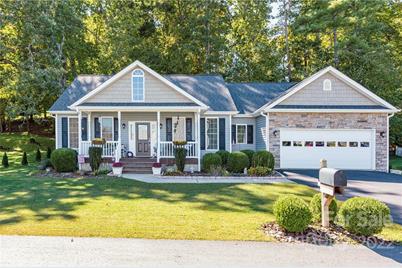
A commission is paid to you as a realty agent for each sale or purchase. It's tempting to ask a family member or friend for advice. But it's not necessary. An agent who closes a $2,000,000 deal makes $120,000 in commission, more than most working people earn in a year. However, there are other considerations that should factor into your decision.
Real estate agent: Your first commission
It can be overwhelming to receive your first commission in real estate if this is your first time working in the industry. You can get help from a Managing broker to guide you through the first year. They can help you get access to the MLS as well as marketing tools and learning opportunities.

NAR membership benefits
Real estate agents have many benefits and resources from the NATIONAL ASSOCIATION OF READERS (NAR). The organization allows members to deduct some of their business expenses. This includes NAR membership dues. These benefits go beyond the income earned by real estate agents. The NAR offers a range of exclusive benefits to its members.
Commissions for real estate agents
When a home is sold, real-estate agents are paid a commission. The seller pays commissions to the agent, and they take a part of the final selling price. Buyers' agents also receive a share of the commission. These are called cooperating commissions, and they are often included in the home's price. However, there are some instances when a buyer's agent receives a commission from the selling agent.
NYC income tax for real estate agents
It is difficult to understand the tax situation when it comes selling real property in New York City. Understanding the impact of tax rates and exemptions on you is critical. If you're a real estate agent, here are some tips to avoid paying taxes while working in New York City. First, register the limited liability company. This is a different entity than an individual. Once you have registered the company, you can file your taxes as normal.

Upscale your real estate market
Your real estate earnings can be increased by targeting high-priced market segments. Although the average commission on real estate is 5 to 6 percent, agents can make a jump in their income by targeting these higher-priced market. For example, a 5% commission on a house selling for $250,000 will net them $2,500, while a 5% commission on a house worth $350,000 will earn them $4,375. Finding the right market is key.
FAQ
How long does it take to sell my home?
It depends on many factors, such as the state of your home, how many similar homes are being sold, how much demand there is for your particular area, local housing market conditions and more. It can take from 7 days up to 90 days depending on these variables.
Is it possible sell a house quickly?
You may be able to sell your house quickly if you intend to move out of the current residence in the next few weeks. But there are some important things you need to know before selling your house. First, you will need to find a buyer. Second, you will need to negotiate a deal. You must prepare your home for sale. Third, your property must be advertised. Lastly, you must accept any offers you receive.
What should I look out for in a mortgage broker
People who aren't eligible for traditional mortgages can be helped by a mortgage broker. They compare deals from different lenders in order to find the best deal for their clients. There are some brokers that charge a fee to provide this service. Others provide free services.
What flood insurance do I need?
Flood Insurance protects against damage caused by flooding. Flood insurance protects your belongings and helps you to pay your mortgage. Find out more information on flood insurance.
What should you look out for when investing in real-estate?
The first thing to do is ensure you have enough money to invest in real estate. If you don’t save enough money, you will have to borrow money at a bank. Also, you need to make sure you don't get into debt. If you default on the loan, you won't be able to repay it.
It is also important to know how much money you can afford each month for an investment property. This amount should cover all costs associated with the property, such as mortgage payments and insurance.
It is important to ensure safety in the area you are looking at purchasing an investment property. It would be a good idea to live somewhere else while looking for properties.
Statistics
- 10 years ago, homeownership was nearly 70%. (fortunebuilders.com)
- This seems to be a more popular trend as the U.S. Census Bureau reports the homeownership rate was around 65% last year. (fortunebuilders.com)
- Based on your credit scores and other financial details, your lender offers you a 3.5% interest rate on loan. (investopedia.com)
- Private mortgage insurance may be required for conventional loans when the borrower puts less than 20% down.4 FHA loans are mortgage loans issued by private lenders and backed by the federal government. (investopedia.com)
- When it came to buying a home in 2015, experts predicted that mortgage rates would surpass five percent, yet interest rates remained below four percent. (fortunebuilders.com)
External Links
How To
How to Manage a Rental Property
Although renting your home is a great way of making extra money, there are many things you should consider before you make a decision. We will show you how to manage a rental home, and what you should consider before you rent it.
If you're considering renting out your home, here's everything you need to know to start.
-
What is the first thing I should do? Take a look at your financial situation before you decide whether you want to rent your house. If you are in debt, such as mortgage or credit card payments, it may be difficult to pay another person to live in your home while on vacation. It is also important to review your budget. If you don't have enough money for your monthly expenses (rental, utilities, and insurance), it may be worth looking into your options. ), it might not be worth it.
-
How much will it cost to rent my house? The cost of renting your home depends on many factors. These include things like location, size, features, condition, and even the season. You should remember that prices are subject to change depending on where they live. Therefore, you won't get the same rate for every place. Rightmove estimates that the market average for renting a 1-bedroom flat in London costs around PS1,400 per monthly. This means that your home would be worth around PS2,800 per annum if it was rented out completely. Although this is quite a high income, you can probably make a lot more if you rent out a smaller portion of your home.
-
Is it worth the risk? Although there are always risks involved in doing something new, if you can make extra money, why not? Make sure that you fully understand the terms of any contract before you sign it. It's not enough to be able to spend more time with your loved ones. You'll need to manage maintenance costs, repair and clean up the house. Before you sign up, make sure to thoroughly consider all of these points.
-
Are there benefits? There are benefits to renting your home. There are plenty of reasons to rent out your home: you could use the money to pay off debt, invest in a holiday, save for a rainy day, or simply enjoy having a break from your everyday life. Whatever you choose, it's likely to be better than working every day. If you plan well, renting could become a full-time occupation.
-
How do I find tenants After you have decided to rent your property, you will need to properly advertise it. Listing your property online through websites like Rightmove or Zoopla is a good place to start. Once you receive contact from potential tenants, it's time to set up an interview. This will allow you to assess their suitability, and make sure they are financially sound enough to move into your house.
-
How can I make sure I'm covered? If you don't want to leave your home empty, make sure that you have insurance against fire, theft and damage. Your landlord will require you to insure your house. You can also do this directly with an insurance company. Your landlord may require that you add them to your additional insured. This will cover any damage to your home while you are not there. However, this doesn't apply if you're living abroad or if your landlord isn't registered with UK insurers. In this case, you'll need to register with an international insurer.
-
It's easy to feel that you don't have the time or money to look for tenants. This is especially true if you work from home. You must put your best foot forward when advertising property. You should create a professional-looking website and post ads online, including in local newspapers and magazines. You'll also need to prepare a thorough application form and provide references. While some people prefer to handle everything themselves, others hire agents who can take care of most of the legwork. You'll need to be ready to answer questions during interviews.
-
What should I do once I've found my tenant? If you have a lease in place, you'll need to inform your tenant of changes, such as moving dates. If this is not possible, you may negotiate the length of your stay, deposit, as well as other details. While you might get paid when the tenancy is over, utilities are still a cost that must be paid.
-
How do I collect my rent? When the time comes to collect the rent, you'll need to check whether your tenant has paid up. You will need to remind your tenant of their obligations if they don't pay. You can subtract any outstanding rent payments before sending them a final check. If you're struggling to get hold of your tenant, you can always call the police. They won't normally evict someone unless there's been a breach of contract, but they can issue a warrant if necessary.
-
What can I do to avoid problems? It can be very lucrative to rent out your home, but it is important to protect yourself. Install smoke alarms, carbon monoxide detectors, and security cameras. You should also check that your neighbors' permissions allow you to leave your property unlocked at night and that you have adequate insurance. You must also make sure that strangers are not allowed to enter your house, even when they claim they're moving in the next door.